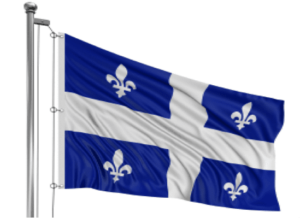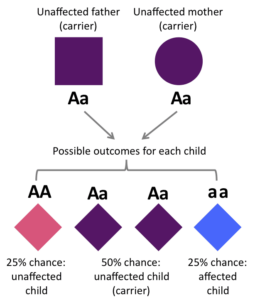
Editor’s note: This post has been edited from its original.
“Quebecois” will likely be celebrating John the Baptist and French-Canadian heritage on June 24th with lively parties, parades and bonfires.
French Canadians
At 23andMe we’re paying tribute to French-Canadian ancestry with the release of two new health reports on rare genetic disorders (Leigh Syndrome, French Canadian Type; and Tyrosinemia Type I) that affect French Canadians more than the general European population.
You’re more likely to encounter these and a few other rare conditions in Quebec because of the interesting history of this region. When French immigrants arrived in “New France” (modern day Quebec) in the 17th century, they likely brought a few “genetic stowaways” with them – mutations that don’t cause any problems on their own but when paired up can result in serious diseases. (Many of the genetic conditions that affect French Canadians today are so-called “recessive” conditions and are caused by having two bad copies of a gene – one from mom and one from dad.)
 Mendelian Recessive Disorders
Mendelian Recessive Disorders
For a recessive disorder like most of those described here, a child whose parents are both carriers will have a 25% chance of developing the disease, a 50% chance of being a carrier, and a 25% chance of being neither.
Founder Effect
They also encountered remote lands that hadn’t been settled yet, so they didn’t have many choices when it came to finding a mate! Through generations of marrying within their own community, the founders’ stowaway mutations got passed down and became more common, thus raising the chances that two people carrying a mutation would have a child that inherits both copies of the mutation.
This “founder effect” phenomenon is most obvious today in the Saguenay-Lac-Saint-Jean region of Quebec where roughly one person in 20 carries a mutation for a rare recessive disorder and about one in 2000 is born with the condition.
Founding Immigrants
Although some of these disorders affect more than just French Canadians, all of them are found at relatively high rates in Quebec and especially in Saguenay-Lac-Saint-Jean. (See table below for more information about these conditions).
French Canadians aren’t the only group with higher rates of certain diseases, but they are unique in that they can trace their ancestry both genetically and through genealogical records generated by the Roman Catholic Church.
Some researchers have even begun to pinpoint which founding immigrants first introduced the stowaway mutations into their new home of Quebec.



